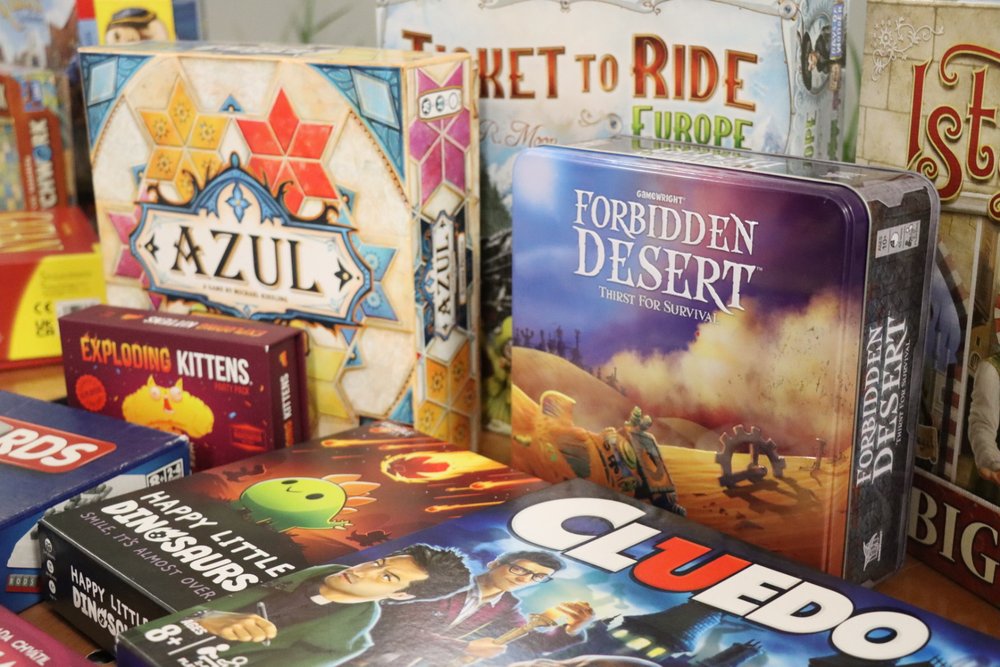Board games offer a break from lessons and help students learn in a fun, interesting, and engaging way. They can help kids build skills like creativity, critical thinking, and teamwork.
You can use educational board games in various subjects, from math to history and phonics to art and coding. These video games can aid children in developing the abilities necessary for academic success and beyond.
Table of Contents
They Encourage Critical Thinking and Problem-Solving
Whether kids are playing a competitive game or one that is cooperative, they’re working on critical thinking skills. This helps them to understand the rules and how their actions affect other players. This is vital to their education and builds their executive function skills. These are the skills they’ll need for future jobs and to be able to solve problems.
Many different types of board games can help children learn about various subjects. For example, some board games teach color recognition and shapes, while others focus on numbers and addition. Others, like Oregon Trail, teach history and help children learn about the hardships of pioneer life. Other board games are designed to encourage responsibility and teach children about money, such as Charge Large.
Educational board games can also be a great way to help kids develop their spatial awareness and logical reasoning skills. For example, a game like Connect 4 teaches kids how to think critically and plan their moves, while Othello is an excellent game for older kids to boost their strategic thinking skills. Other educational board games like Timeline allow kids to better understand historical events by placing the events on a timeline.
They Promote Collaboration and Inquiry
When kids play board games together, they learn to cooperate and communicate. This vital life skill will serve them well in their adult lives. Some children may not be the best at cooperating, but they can learn to work together for a common goal with practice. For example, they can play cooperative educational board games that focus on learning to read maps or explore the oceans.
Learning through gameplay promotes a love for education because it makes the subject matter fun and exciting. It also helps push through complex subjects and allows the students to see them differently. For example, a student struggling with reading can work on their vocabulary and spelling skills while playing a round of Scrabble or Happy Hats Beginning Reading Game.
Many people who homeschool use educational board games to help with language development, math, and science learning, as well as for moral instruction and social skills. Some call this approach “homeschooling,” which is becoming increasingly popular. A growing body of research supports the positive impact of educational board games, and teachers and parents back their effectiveness. Students who learn through board games show improved academic outcomes compared to those who don’t. They also tend to retain the knowledge learned through gaming for extended periods.
They Build Social Skills
Board games allow kids to practice social skills in a safe and fun environment. They help children develop various skills, including waiting, turn-taking, sharing, and coping with loss. They also learn how to work collaboratively and problem-solve with others. This helps kids prepare for the social situations they will encounter in school and outside the home.
In addition to building social skills, educational board games can teach various subjects and skills necessary for learning. For example, many board games teach logic and strategy. They can also teach math, history, and geography or introduce children to a topic they are interested in. Many board games even build fine motor skills by requiring players to use their hands to play.
There are also cooperative board games that teach teamwork and encourage communication. These games also prepare children to deal with the more complex social situations they will face as they grow up and enter adulthood. They will need to be able to work cooperatively with people of different origins and personalities because they will need to solve problems and collaborate for the good of everyone.
Some board games also teach various basic communication skills, such as listening and non-verbal communication. Other board games teach communication in more specific ways, such as discussing what they see and think, using their imaginations, and engaging in discussions.
They Help Build Character
As a bonus, board games provide a great alternative to video games and TV. Kids fully engaged in a game are not distracted by technology and will be more likely to focus on academic work. They will also learn how to interact with others healthily and not argue with one another. This is a precious lesson to be learned early in life.
Many educational games are designed to teach children about specific subjects or skills, such as math facts, geography, phonics, and history. But they also teach many social and emotional skills that are equally important. For example, games encouraging players to cheer on their teammates or to lose gracefully help them develop good sportsmanship. They will also learn how to take turns and respect the decisions of other players.
Some games even promote creativity, such as Apples to Apples or Dixit, asking players to compare unrelated concepts and develop original ideas. These games help develop the right side of the brain where creative thinking occurs. As a result, these players tend to perform better on class tests than students who do not play the games (Jones et al., 2015). If you are looking for educational board games to include in your homeschool, look for those that have a specific learning objective, such as language arts or math, but remember the other skills that are just as important.





